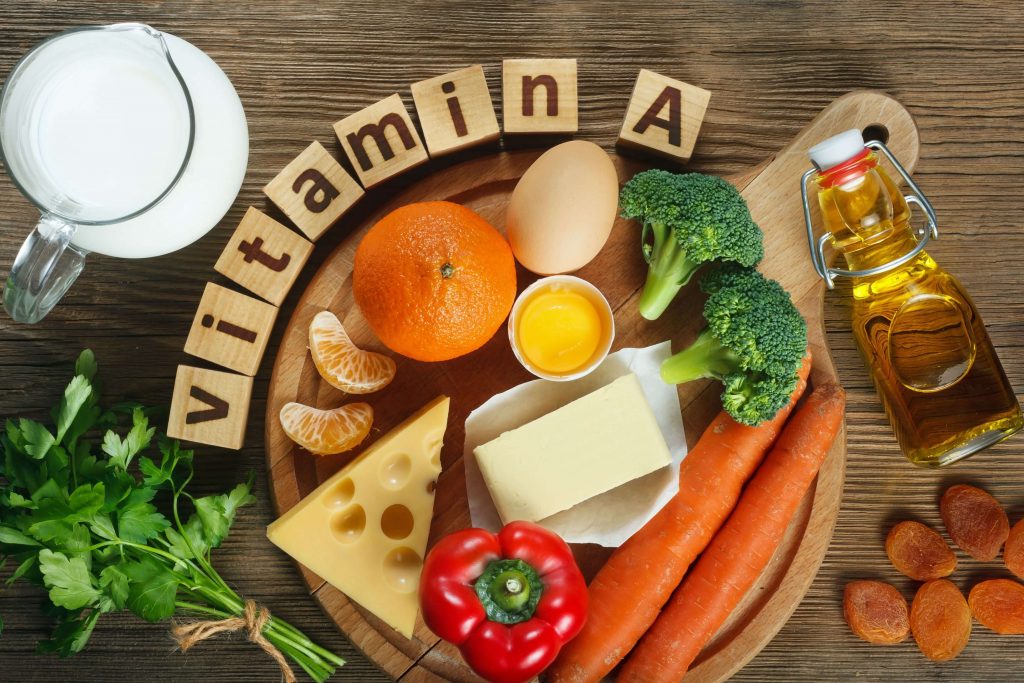Overview
Vitamin A is a vital nutrient that plays a crucial role in maintaining overall health and promoting healthy skin. As a fat-soluble vitamin, it is essential for various bodily functions, ranging from supporting vision to boosting the immune system. In this article, we will delve into what vitamin A is, its food sources, its daily recommended intake, and its specific benefits for the skin. Additionally, we will explore the significance of vitamin A in liver health, its relationship with iron, and its use in skincare during pregnancy.
What is Vitamin A?
Vitamin A is a group of fat-soluble compounds that includes retinol, retinal, and retinoic acid. These compounds are commonly found in animal products and some plant-based foods. Its role as an essential nutrient cannot be overstated, as it contributes to various bodily functions, growth, and development.
What are Vitamin A Foods?
Including vitamin A-rich foods in your diet is crucial to meeting your daily requirements. Some excellent sources of preformed vitamin A (retinoids) include liver, fish oil, dairy products, and eggs. Plant-based foods provide provitamin A carotenoids, such as beta-carotene, which the body can convert into vitamin A. Carrots, sweet potatoes, spinach, kale, and mangoes are among the top sources of beta-carotene.
Is Vitamin A Good Daily?
Yes, vitamin A is essential for overall health and well-being. The recommended daily intake of vitamin A varies by age and sex. For adult men, it is around 900 micrograms (mcg), and for adult women, it is 700 mcg. Pregnant and breastfeeding women may need slightly higher amounts. However, excessive intake of vitamin A supplements can be harmful, so it is essential to stick to the recommended doses.
What Does Vitamin A Actually Do?
Vitamin A serves various critical functions in the body:
- Vision: Retinol, a form of vitamin A, is essential for vision in dim light. It is a component of rhodopsin, a light-sensitive protein in the eyes, which helps us see in low-light conditions.
- Immune Function: Vitamin A supports the immune system by maintaining the integrity of the skin and mucous membranes, acting as a barrier against pathogens.
- Cell Growth and Differentiation: Vitamin A plays a vital role in the growth and specialization of cells, which is essential for the development and maintenance of organs and tissues.
- Reproduction: It is crucial for normal reproduction processes and the development of the embryo during pregnancy.
Vitamin A for Face and Skin
Vitamin A is renowned for its positive effects on the skin. It is a common ingredient in skincare products due to its potential to:
- Combat Aging: Retinoids, derived from vitamin A, can reduce the appearance of fine lines and wrinkles, promoting a more youthful complexion.
- Treat Acne: Retinoids can help unclog pores and reduce inflammation associated with acne, making it an effective treatment for some individuals.
- Improve Skin Texture: Regular use of vitamin A derivatives can lead to smoother and softer skin by enhancing cell turnover.
Vitamin A and Liver
The liver plays a critical role in storing and releasing vitamin A. When the body needs vitamin A, the liver releases it into the bloodstream. Conversely, if there is an excess of vitamin A in the body, the liver stores it for future use.
Vitamin A and Iron
Vitamin A and iron are both essential nutrients, but there is no direct relationship between the two. However, vitamin A aids in the absorption of iron from plant-based foods. Consuming foods rich in vitamin A alongside iron-containing foods can enhance iron absorption.
Vitamin A Skincare during Pregnancy
During pregnancy, topical retinoids (vitamin A derivatives) are generally not recommended as they may pose potential risks to the developing fetus. It is advisable to consult with a healthcare professional before using any vitamin A-based skincare products during pregnancy.

